- Home
- Helen Forrester
The Liverpool Basque Page 11
The Liverpool Basque Read online
Page 11
‘Holy Mother!’ exclaimed young Peggy O’Brien from two doors down the street. ‘What on earth was that?’ She and two other women rushed towards Bridget. ‘Which house was it?’
‘Micaela – Rosita, I think!’
She ran down her steps and up the Barinètas’ steps. Followed by the other women, she burst into the narrow hallway, to find her way blocked by Domingo and Vicente turning into the parlour with their heavy burden. Behind her, women crowded up the steps, their speculations cut short by a glimpse of the young men’s grim faces.
The little crowd fell back, to allow Father Felipe, with Manuel clutching his hand, to enter a house close to pandemonium. Already terrified, Manuel clung to the priest.
As the cleric’s presence was realized, people began to quieten. Space was made for him to squeeze into the small parlour, leading the child with him.
They were both faced with the dead man clumsily propped up on the horsehair sofa; Micaela was on her knees, her face buried in his lap as she loudly lamented something about a drainpipe and that it was all her fault.
While Manuel hid his face in the priest’s coarse robe and clung to him, Father Felipe resolutely took command. He recognized most of those present, including Maria still in her nightgown, though someone had thrown a shawl over her shoulders. The other daughter, Rosita, looked as if she would collapse at any moment, as she turned magnificent, sorrowful blue eyes upon him. In the distance, he could hear a baby shrieking, untended. At the back of the tiny room, two young men – the Saitua boys – and their mother stood uneasily watching the scene. Three other women had crowded in; and, when entering, he had pushed past three more, whispering at the foot of the front steps.
His first thought was for the terrified child clinging to him. He recognized Bridget Connolly standing to his left; Bridget, he knew, had a lot of experience of children and nursing. He bent and picked up Manuel, as he spoke to her. ‘Could you take Manuel and look after him for a little while?’ he asked in stilted English.
She automatically opened her arms to the white-faced little boy, who showed no signs of wanting to go to his mother. ‘Of course. Now, you come with Auntie Bridget, me dove. Father Felipe’s going to do what he can to help your granddad and grandma – and your mam.’ She hugged the boy to her, and wrapped her shawl round him. ‘You come and have some dinner with our Mary and Joey.’ Space was made for her, as she eased through the parlour door. ‘And then you can have a little play together in our yard, till your mam comes for you.’ Her soft Irish voice and familiar red face were comforting and normal, so he went with her without demur; Grandpa looked so peculiar and everybody had obviously been making such a fuss before the arrival of Father Felipe that the instinct was to escape. He knew from experience that Auntie Bridget always gave you a straight answer – she never said ‘perhaps’ or ‘maybe’ – so if she said that Mother would come for him, Mother undoubtedly would.
As they squeezed past him, the priest patted the child’s back and smiled at him, ‘Well done, Manuel,’ he said. ‘You were a clever lad to bring the message so quickly.’
Manuel smiled wanly back; only later did he appreciate that he had been praised by a priest; it was like being praised by God himself, he decided; it was something good shining through an awful day.
Father Felipe turned to Mrs Saitua, who seemed calmer than the other women. ‘Has a doctor been sent for?’ he inquired.
She looked across at Rosita. ‘No,’ she said.
Rosita said, ‘He’s dead.’
‘You should get a doctor immediately, Mrs Echaniz.’
Rosita nodded helplessly, her strength nearly gone.
‘I’ll go,’ Domingo told her, and thankfully left the room.
Puzzling over his notebook seventy-eight years later, Old Manuel wondered how to explain to Lorilyn the trauma of that week, how his childhood home had been invaded by an unknown something called Death. Grandpa had simply fallen off a ladder, and had in a second or two gone to God. It was called dying. Nobody had tried to hide it from him; in fact, he had been called upon to help – he had run to get Mrs Saitua and Father Felipe.
In the sanitary world of North America, at the age of nineteen what would Lorilyn have seen of death, other than through the monstrosity of television? Would she have any idea that the victim’s pain and death would be an agony to those who loved him?
Nowadays, on the whole, people lived long lives. Pain and death were dealt with by hospitals and batteries of doctors and health-care workers; even the carnage of the streets was quickly shovelled into ambulances and the streets washed down, so that no one would be offended by the sight of blood. At the end you lay in a mortuary until you had been tidied up and made fit for public inspection.
Would she even know how to lay out a loved one, as he knew his mother and grandmother had done for his grandfather? Would she sit a whole night by her dead father as Maria had done, saying her rosary over and over again? Doing all of it as a final outpouring of affection?
He knew that she would not.
It was a sore point with him that he himself had not been allowed to lay Kathleen out. Faith had been on her way to visit her mother, that morning, and had used her own key to enter the house. She found him sitting by the bed in the sitting-room, holding her dead mother’s hand, and she had immediately taken charge. Her face stony, she had consulted the yellow pages of the telephone book, called a funeral director, called her husband, asked if he had had any breakfast, insisted on his moving into the dining-room and having some coffee. He was so exhausted that he obeyed her. The only thing he had said to her was, ‘Call the doctor.’
He had not finished the coffee Faith had thrust into his hand, when the doctor arrived, followed closely by the funeral director. They held a committee over poor Kathleen’s body, and then, while the young general practitioner came to sit with him for a few minutes, Kathleen was removed.
He half rose from the table in shock, when he saw what the funeral director and his men were doing. He looked in bewilderment at the doctor, but words would not come to him – he was so tired. He wanted time with Kathleen, but the doctor grasped his arm firmly, and said kindly, ‘Everything’s been taken care of – you must rest now. Faith will deal with everything.’
His rage at his daughter’s quiet efficiency had simmered in him throughout the funeral and for long afterwards. He never considered that she was holding in her own grief, while she tried to make things easier for him.
Since there was no reason to stay in his own house, he went home with her for a few days and slept most of the time, until the coroner released the body and they went back to Victoria for the funeral.
People swarmed through his bungalow, drinking coffee and wine and eating cocktail-type nibbles. But when the ladies, including Veronica, had washed up the last cup and saucer and put them back into the china cabinet, he saw them all to the door. Faith had protested that he should come back to her home in Vancouver. Her big kindly husband had assured him he would be most welcome.
But he wanted to be alone with Kathleen’s ghost, even if everybody else considered that a funeral finished everything. As far as he was concerned it did not.
He sat alone on the bed, which had been heaved back upstairs and into his bedroom by three male neighbours, and stared out of the window, while he mentally beat himself for allowing her to suffer so much – and at the end be so tired that he had not protested at her hasty removal.
Bearing in mind his own pent-up wrath, perhaps it was as well that Lorilyn had been in Europe, at the time. She was doing a special, high-powered course in French. Faith told him that she had written to her daughter telling her that, since she could do nothing for Grandma, she should not return for the funeral, but, instead, should take her impending exam.
And yet?
Not do anything for Kathleen? Weren’t prayers and paying one’s respects something? At the time, he hated his phlegmatic daughter – and his granddaughter for not disobeying her mother. Furious,
he had shut himself up for weeks, frequently refusing to answer the doorbell or the telephone. He had never gone back into the social circle to which Kathleen and he – well, mostly Kathleen, he admitted – had belonged; and it had taken the best part of a year before he could do more than simply endure his daughter’s and granddaughter’s visits, when they inspected the food cupboard and the freezer to make sure he had enough to eat.
Then, slowly, sanity returned. He realized, shamefacedly, that both women – and his son-in-law – had done their best for him according to the society in which they lived, and that it was grossly unfair of him to expect anything different.
The more he thought about that time, the more he realized that Faith had shown the same calm, stolid endurance of grief that his own mountain grandparents would have shown. She had, indeed, done her utmost.
As for himself, it slowly dawned upon him that he was far too like Grandpa Barinèta, who, when he was angry, had always had a real tantrum, stalking round the kitchen like an enraged cockerel until he had extracted apologies from everybody in sight. However did Kathleen put up with me? he wondered.
Chapter Fourteen
Although Manuel had allowed himself to be taken by Bridget Connolly to her house, while Father Felipe dealt with his stricken family – when a priest gave an order, you obeyed – he was very scared at being removed from the scene of the action; he could not put his fears into words and he wished suddenly that his father was there; he longed for his quiet orderliness; he would be able to explain what was truly happening.
But his father was at sea on the other side of the Atlantic and had no inkling of the disaster in his home.
When, in addition to midday dinner, Bridget kept him for tea, he protested strongly, crying that he wanted his mam. He quarrelled with Mary and Joey, who were very possessive of their territory and few toys; he was not a big child for his age, and they tended to treat him with the condescension usually reserved for a much younger playmate; it confused him even more.
With a sigh, Bridget picked him up as if he were, indeed, still a toddler. With him straddled on her hip, she struggled to make ready her husband’s tea. Manuel found her closeness and warmth comforting, and his loud crying became soundless sobs, which made Bridget want to weep herself.
When Pat Connolly arrived home from work, his wife shouted into his ear the reason for Manuel being unexpectedly in their care.
‘Juan had a bad accident,’ she told him briefly, since she did not want to emphasize in front of her children exactly how deadly the accident had been.
Her loud voice frightened Manuel even more, though he knew Mr Connolly could not hear properly. He cried helplessly, making no attempt to rub his eyes clear of tears.
She turned back to the child. ‘There, there, Mannie, luv. Your mam’ll come soon,’ she soothed, wondering at the same time how his bereaved family was getting on.
Pat Connolly made no response to Bridget’s explanation. He swept one of Pudding’s granddaughters off a battered easy chair, and sat down suddenly and closed his eyes. The dislodged cat eyed him malevolently from under the deal table. Mary brought him his slippers, but he made no attempt to take them from her. She set them down by his feet and crept away.
As he watched him from the safety of Bridget’s broad hip, Manuel’s tears tailed off. Mary and Joey’s dad looked so different from his own father. He smelled different, not only of old sweat. He had a curious metallic odour as well. He was practically bald, with a grey fringe round the sides of his head. A day’s beard glinted whitely on his chin. The lids of his closed eyes were bright red, as was his nose, and the rest of his skin was an unhealthy yellowish-white, whereas Manuel’s father had skin the colour of a ripe hazelnut and a thick thatch of fair hair – and, Manuel thought, his dad did not come home to sit silently in a chair; he first hugged and kissed his mother and himself.
Only when he was a little older, did Manuel understand from the conversation of adults the appalling conditions under which men like Pat worked and their absolute exhaustion by the end of the day. As Mr Saitua once remarked, ‘You have to be a bloody contortionist to do that job. Never mind the racket!’
Bridget swung the boy round towards the table, while she poured a mug of tea, which had been simmering on the hob for some time. She picked up a tin of condensed milk from the draining board by the sink, and let a generous amount trickle into the black brew. Then she spooned some sugar out of a small blue bag on the table. She stirred everything up vigorously, then picked the mug up and said to her weary spouse,’ ‘Ere you are, luv. Lovely and hot, it is.’
The scaler opened his eyes and there was a hint of a smile in them, as he accepted the tea. As he drank it, he began to relax and become his usual amiable self.
‘How was your back today?’ she inquired.
He sighed, and then said, ‘It weren’t so bad as yesterday.’
‘I’ll rub it again tonight for yez. Nothing like a bit of Sloane’s liniment for backs.’ She noticed that Manuel had been diverted by the cat leaping quietly over the fender, to curl up close to the fire, so she slid him down by it. He knelt down and put his hand over the steel bar, to stroke its black satin back. The warmth of the blaze was comforting, and the cat stretched itself under his careful hand. He laid his cheek on the warm fender just above the animal. His stroking became slower and, despite the hardness of his pillow, he fell asleep.
Bridget paused in her bread-cutting to look down at him compassionately. ‘Poor little bugger,’ she mouthed at her husband, careful not to wake the child. ‘He were proper upset. Terrible for him to see his grandpa killed.’
Pat understood what his wife was trying to convey. ‘Oh, aye,’ he agreed softly, some of his exhaustion receding as he rested his legs. ‘It isn’t going to be easy for them, without the Ould Fella; he did well, he did, with his emigrants and all.’ There was no hint of shock in his voice; his fatigue was too great. Juan was an old man; his time had come.
‘This is where they could use Leo.’
‘The lad what went to America? Oh, aye. Young Pedro will have his hands full, feedin’ a houseful of women and kids.’
When Manuel woke up, he was startled to find himself in his own bed, Pat Connolly having kindly carried the sleeping child in for Rosita. Across the room, Auntie Maria was seated on the edge of her narrow, iron bed, telling her beads by the light of the moon filtering between the window curtains. She wore a black shawl over her heavy, flannel nightgown, and her old carpet slippers on her feet. She was crying.
Manuel struggled to sit up; he was still in his jersey and shorts, but his boots and socks had been removed. ‘Where’s Mam?’ he asked immediately, and yawned.
Aunt Maria gave a big sob. ‘She’s downstairs with your granddad and grandma – and Peggy O’Brien is with them; she’ll watch all night with them.’
‘Why? It’s dark – it’s bedtime.’ He pushed off his blankets, as if to get out of bed.
Auntie Maria immediately put down her rosary, got up clumsily and shuffled over to him. ‘No, no, dear. You can see your mam in the morning.’
Manuel remembered suddenly his grandfather hurtling through the air, and the sickening crash as he hit his head on the tiled lavatory roof; and then Father Felipe and Mrs Connolly.
He shivered. ‘Is Grandpa very hurt?’ he asked, knowing in his heart that something much worse than being hurt had happened, though he could not put a name to it.
Aunt Maria loomed over him like a dark ghost, as, for once, she bent to kiss him on the forehead. Her face against his felt wet, as she quickly pulled herself back.
‘Yes,’ she said softly. ‘He’s gone to God.’ She pushed him gently back on to the bed and lifted his bedclothes over his shoulders.
‘Does that mean he’s dead?’ Manuel asked tentatively, afraid of the reply.
‘Yes.’ The single word came out slowly, like the beginning of a long lamentation.
‘So Mam and Granny have to stay with him?’
‘Ye
s. Tomorrow, Grandma and I’ll sit with him, so your mam can get a little sleep – and Peggy O’Brien will go home. Maybe Mrs Saitua will come to sit for a little while to be company for Grandma and me.’
‘Doesn’t Granny want to go to bed?’
‘I don’t think so, luv. She’ll want to be with Grandpa.’
‘Is he lonely because he’s dead?’
The question was almost too much for Maria. She clapped the back of her hand to her mouth, to stop herself from crying out. She did not answer, while she sought to control herself, and then she said softly, ‘We don’t really know, dear. But we think he might be.’
‘While he’s waiting for his Guardian Angel?’
She smiled faintly through her grief. ‘Yes, dear.’
To his knowledge, Auntie Maria, like Bridget Connolly, rarely lied, so he was satisfied that Grandpa would soon be taken wonderful care of by his own private golden guardian, complete with wings, to bear him to Heaven. Still very weary, he turned over and was soon asleep again.
His aunt went back to her bed and her rosary. Her belief was almost as literal as the child’s, and she was comforted by the reminder of a heavenly being standing close to each one of us. She would miss her father dreadfully, but it was nice to feel that he would be looked after, and that, despite dying unshriven, he could hope for a seat in Heaven, because he had been such a good parent.
Chapter Fifteen
The day after Juan Barinèta’s unexpected death, Manuel was sent back to school. He wore his Wellington boots and a macintosh, because the rain was sheeting down; it was as if winter had suddenly set in. His mother had silently given him his porridge and milk and, equally subdued, he had eaten it. Grandma and Aunt Maria did not appear at all; he guessed that they were both in the parlour, the door of which was firmly closed.

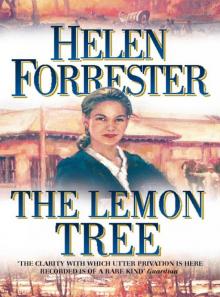 The Lemon Tree
The Lemon Tree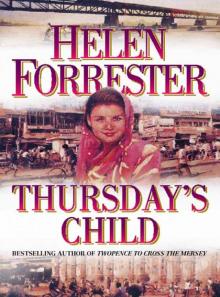 Thursday's Child
Thursday's Child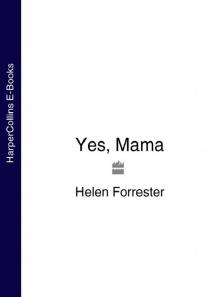 Yes, Mama
Yes, Mama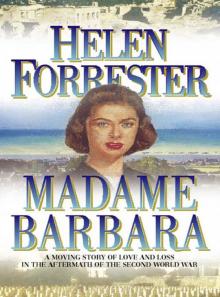 Madame Barbara
Madame Barbara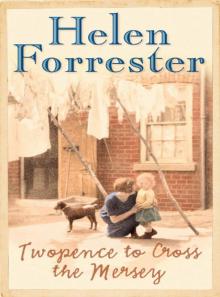 Twopence to Cross the Mersey
Twopence to Cross the Mersey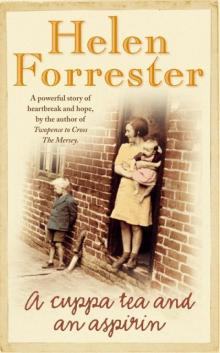 A Cuppa Tea and an Aspirin
A Cuppa Tea and an Aspirin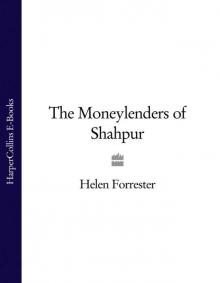 The Moneylenders of Shahpur
The Moneylenders of Shahpur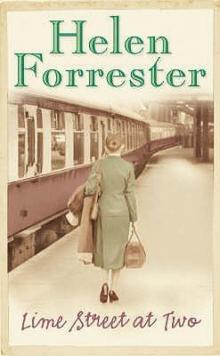 Lime Street at Two
Lime Street at Two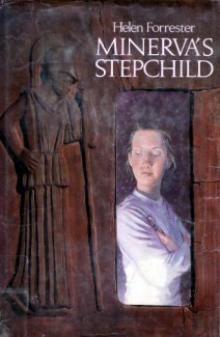 Minerva's Stepchild
Minerva's Stepchild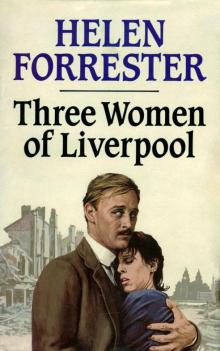 Three Women of Liverpool
Three Women of Liverpool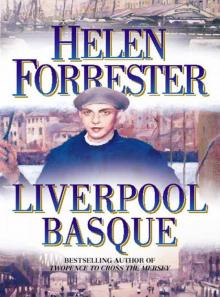 The Liverpool Basque
The Liverpool Basque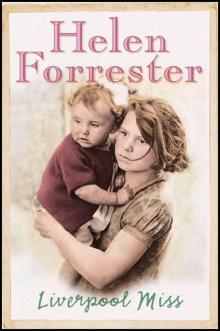 Liverpool Miss
Liverpool Miss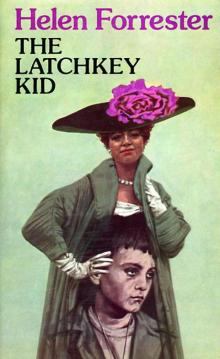 The Latchkey Kid
The Latchkey Kid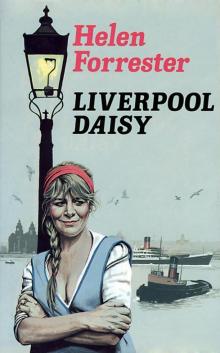 Liverpool Daisy
Liverpool Daisy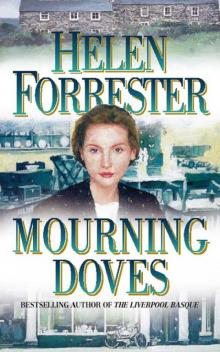 Mourning Doves
Mourning Doves